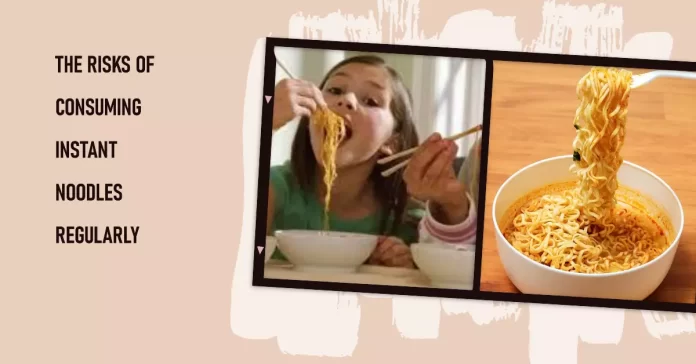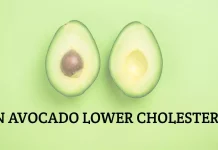
Instant noodles are those quick and convenient meals that many of us turn to when time is short or hunger strikes unexpectedly. They’re known for their affordability and ease of preparation, but what about their impact on our health when consumed regularly?
The Instant Noodle Appeal
Before we dive into the risks, let’s acknowledge why instant noodles are so popular. They’re ultra-convenient. In minutes, you have a steaming bowl of noodles ready to devour. Plus, they’re budget-friendly, making them an attractive option for students, busy professionals, and anyone looking for a fast meal.
The Ingredients Inside
To understand the risks, we need to peek inside that plastic-wrapped block of noodles. Instant noodles typically contain four main components: noodles, a seasoning powder or sauce, dehydrated vegetables, and often, a host of additives.
High in Sodium
One of the most significant concerns with instant noodles is their sky-high sodium content. The seasoning packets often contain an abundance of salt to enhance flavor. Frequent sodium consumption can result in high blood pressure, heart disease, and other health issues when it occurs regularly.
Palm Oil
Palm oil, commonly used in various instant noodles, contains unhealthy saturated fats. Excessive consumption of these fats can lead to increased cholesterol levels and heart problems.
Lack of Nutrients
While instant noodles offer a speedy solution for hunger, they come up short in essential nutrients. Instant noodles often lack important vitamins, minerals, and protein, making them a calorie-heavy but nutritionally deficient meal.
MSG and Artificial Additives
MSG (monosodium glutamate) and artificial additives are common in instant noodles. While they enhance taste, they can trigger adverse reactions in some individuals, causing headaches, nausea, and other discomforts.
The Impact on Health
So, what happens when you regularly indulge in instant noodles? Here are some potential risks:
- Weight Gain: Their high-calorie content can contribute to weight gain when not balanced with other healthier foods.
- High Blood Pressure: Excessive sodium intake can lead to hypertension, increasing the risk of heart disease and stroke.
- Unhealthy Fats: The saturated fats from palm oil can negatively affect cholesterol levels and cardiovascular health.
- Nutritional Deficiency: Relying on instant noodles means missing out on essential nutrients your body needs.
Balancing Act
Does this mean you should never eat instant noodles again? Not necessarily. The key is moderation. Enjoy them occasionally as a quick treat, but don’t make them a dietary staple.
Opt for Healthier Alternatives
When you can, opt for healthier meal choices. Preparing quick and nutritious meals at home, like whole-grain pasta with vegetables or a hearty salad, can satisfy your cravings while supporting your overall health.
Conclusion
Instant noodles, while convenient, come with health risks when consumed regularly. High sodium, unhealthy fats, and nutritional deficiencies are among the concerns. Balancing is the key, as it is in many aspects of life. Enjoy your occasional instant noodle fix, but prioritize a diet rich in whole, unprocessed foods to support your long-term well-being. Your health deserves the best, after all!
Frequently Asked Questions (FAQs)
Are instant noodles bad for my health if I eat them occasionally?
Regularly eating instant noodles is generally not a big concern for most individuals. It becomes an issue when they form a substantial part of your diet.
How does high sodium in instant noodles affect my blood pressure?
High sodium intake from instant noodles can lead to high blood pressure (hypertension) over time, increasing the risk of heart disease and stroke.
Can I gain weight from eating instant noodles regularly?
Yes, frequent consumption of high-calorie instant noodles without a balanced diet can contribute to weight gain.
What are the long-term health risks of consuming instant noodles frequently?
Long-term risks may include weight gain, high blood pressure, high cholesterol, nutritional deficiencies, and an increased risk of heart disease.
Is there a difference in health impact between different brands of instant noodles?
It’s essential to check labels because the nutritional content can differ between brands. However, many instant noodles share similar concerns regarding high sodium and unhealthy fats.
Are there any nutritional instant noodle options available?
Some brands offer healthier options with reduced sodium and whole-grain noodles, providing a slightly better nutritional profile.
What can I add to instant noodles to make them healthier?
You can make instant noodles better by adding fresh vegetables and lean proteins like tofu or chicken. Also, consider using less of the seasoning packet to reduce sodium.
Do instant noodles have an expiration date, and does it affect their safety?
Instant noodles have a shelf life, but as long as they are stored correctly and within their expiration date, they are generally safe to eat.
Can children safely consume instant noodles, or should they be limited in their diet?
Children can enjoy instant noodles occasionally, but their diet should primarily consist of nutritious foods to support growth and development.
What are some alternatives to instant noodles for quick and convenient meals?
Consider alternatives like whole-grain pasta, pre-made salads, or homemade sandwiches with lean protein and veggies for healthier quick meals.









